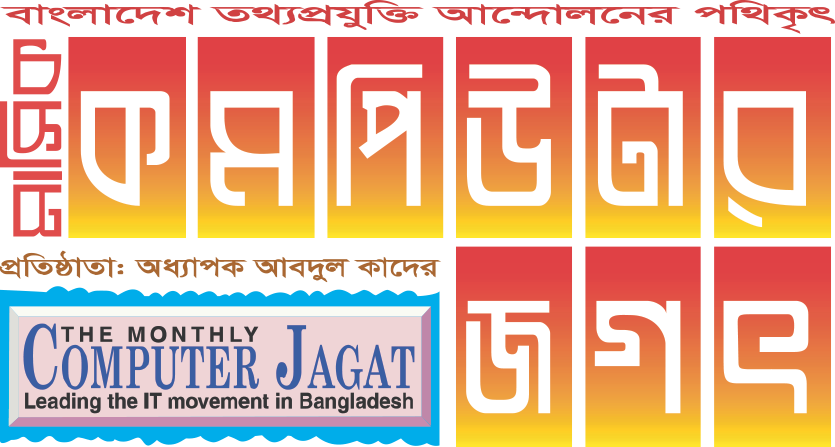হোম > Therap CEO Richard Robbins Recognizes: In Bangladesh Technology Sector Is Moving in Right Direction
লেখক পরিচিতি
লেখকের নাম:
কজ রিপোর্টার
মোট লেখা:৩৭৯
লেখা সম্পর্কিত
পাবলিশ:
২০১১ - সেপ্টেম্বর
তথ্যসূত্র:
কমপিউটার জগৎ
লেখার ধরণ:
প্রযুক্তি বিপ্লব
তথ্যসূত্র:
ইংরেজি সেকশন
ভাষা:
বাংলা
স্বত্ত্ব:
কমপিউটার জগৎ
Therap CEO Richard Robbins Recognizes: In Bangladesh Technology Sector Is Moving in Right Direction
Therap (BD), wholly owned subsidiary of Therap Services, LLC, is among the leading software companies in Bangladesh. The company provides electronic documentation, health records, secure communications and billing software as a service (SaaS) to more than 700 private and government organizations working with people with developmental disabilities in the US and Canada. In this interview with Computer Jagat, Therap CEO Richard Robbins talked about his experiences in Bangladesh and expressed his opinions on the prospects of health IT and mobile technology in the country.
Tell us a bit about Therap (BD).
Therap (BD) is a wholly owned subsidiary of Therap Services, LLC in the United States. We provide secure, web-based Software as a Service (SaaS) to government agencies and NGOs supporting people with developmental disabilities. We are the national leader in the US in this sector. Currently, we have a customer base of approximately 700 organizations working in 45 states.

Richard Robbins
We now maintain over a billion records of more than 70,000 individuals. Our software system is mandated by five State governments in the US. We also have customers in a few Canadian provinces and are extending our market to North America, parts of Europe and Asia.
Why did you decide to have an office in Bangladesh?
We envision ourselves as a global company. Our board of directors and top management have both American and Bangladeshi citizens as members. As mentioned earlier we have plans to market our services in Asia and for that we need an establishment in this region. We wanted to be in a country where we knew people we could trust. We also liked the strong university system here in Bangladesh, which would supply us with an adequate number of skilled professionals for our growing workforce.
The other important consideration was that we think we can make a real difference here. We wanted the opportunity to work with the local disability community in Bangladesh and in the process, come up with a system that can serve disability communities in other countries in the region.
Therap (BD) Ltd. has been in Bangladesh since 2004, do you provide services to any Bangladeshi organizations? If not, do you have any such plan?
At the moment we are working on the National e-Governance Architecture (NEA) project run by the ‘Access 2 Information Programme’ (A2I) in Bangladesh. We are also working on a pilot initiative with the Department of Social Services under the Ministry of Social Welfare (MSW), National Forum of Organizations Working with the Disabled (NFOWD) and Jatiyo Protibondhi Unnayan Foundation (JPUF) to develop a national database for persons with disabilities in Bangladesh.
You have visited Bangladesh several times. How would you evaluate the changes of the technology sector in this country?
I would say things are moving in the right direction in terms of the spread of internet and cell phone networks throughout the country. The younger generations seem increasingly more comfortable with web technologies. The country also has many skilled IT professionals.
A key contributing factor here is the increased availability and decreased cost of bandwidth, not just in offices and universities, but also in peoples' homes.
What steps should the government of Bangladesh take to promote the IT sector?
We are generally pleased with the state of things in Bangladesh. We have seen a commitment over time to develop and improve the IT infrastructure and capacity in the country. Obviously better bandwidth or good schooling system is important. But as far as business and industry is concerned, even reductions in traffic with new flyovers would make a big difference.
What do you think about this initiative Digital Bangladesh?
I had the opportunity to present at a Digital Bangladesh conference in New York in 2010. It is a promising concept. Developments in information access and e-Governance can go a long way to bring about long lasting changes in the country through more transparent governance, better public service and diminishing corruption. It will be interesting to see how it develops in the future.
What are your thoughts on the possibilities and challenges of health IT in Bangladesh?
I would say health IT systems are especially relevant for a country such as Bangladesh, where a good portion of the population live in remote areas but good healthcare facilities, including doctors, are only to be found in the cities.
For the patients, as well as for doctors, it is often a long way from the village to the district hospital, and then, an even longer way to the capital city, just to get a second consultation. The process is painful, time consuming and expensive to say the least. A significant portion of this could be avoided if the village doctor had a suitable way to communicate and exchange patients' health information with a colleague in the city. That is just one scenario. Health-IT could improve the quality of healthcare in many other ways.
Therap services has worked in various government projects. Can you share your experience of working in those projects? Did you face any bureaucratic problems?
Over the years, we have worked with government organizations and NGOs in many different countries including the US, Canada, Bangladesh and Nepal. We have come to realize that these are not 'fast sales'; government processes tend to be long no matter where in the world.
In all government initiatives, our policy has been to operate in a globally transparent manner. We have bid for and won public tenders/RFPs both in the US and in Bangladesh. We have government contracts in seven US states. In all cases our edge has been the quality of product and the competitive pricing we offer. Once we win a bid, our goal is to deliver in time and within budget.
What is your future plan with Therap (BD) Ltd.?
I was invited to present at a luncheon arranged by the Bangladesh Next initiative in New York in 2010 where I had the opportunity to explain how we work and the positive experiences and growth we have had in Bangladesh. We hope to maintain this growth by working with local NGOs and government agencies to develop mobile/IT health care applications suitable for this region.
We have been involved with BASIS for years. We are participating in various ICT seminars and are sponsoring various university events, such as the ACM ICPC contests. We are an active member of this community and intend to remain so in the future.
Interviewed by : Razib Ahmed
CJ WEB
লেখাটি পিডিএফ ফর্মেটে ডাউনলোড করুন
লেখাটির সহায়ক ভিডিও
পাঠকের মন্তব্য
২০১১ - সেপ্টেম্বর সংখ্যার হাইলাইটস



